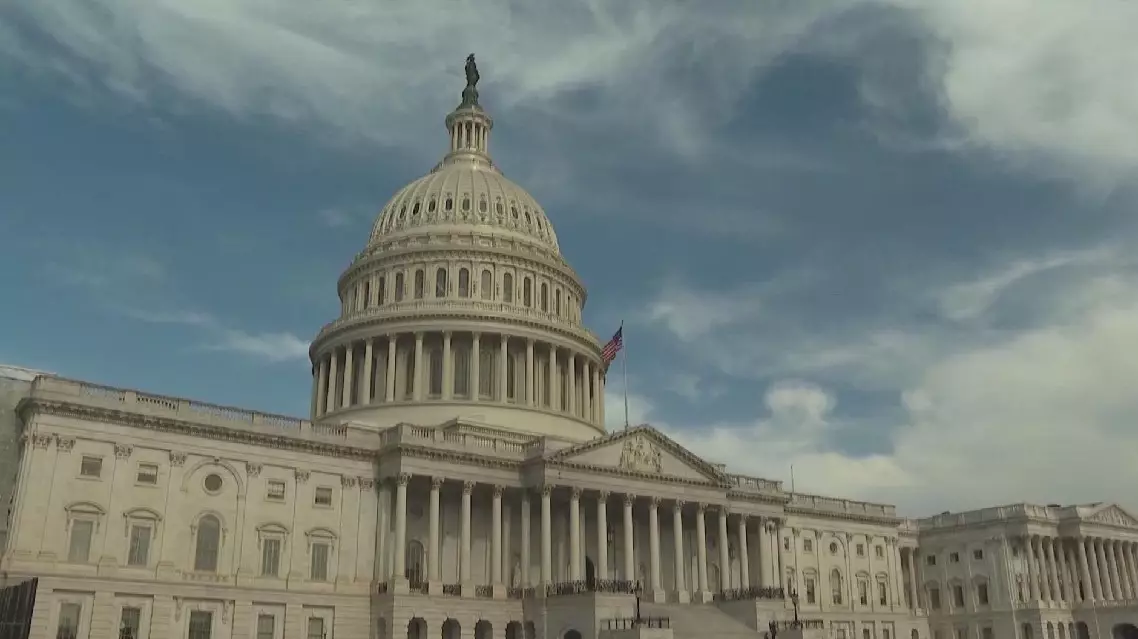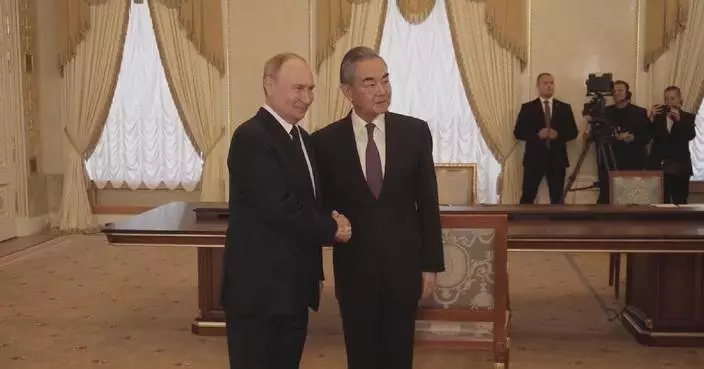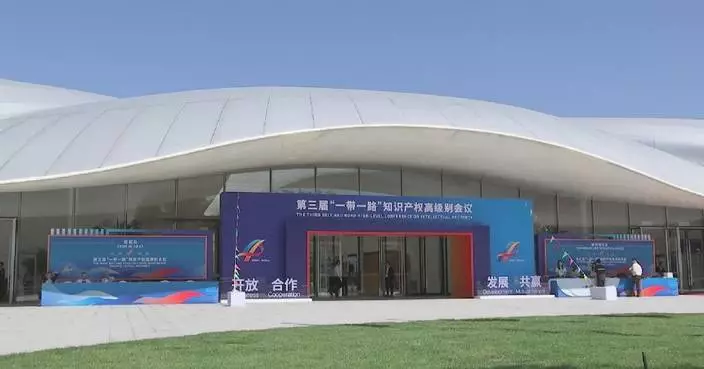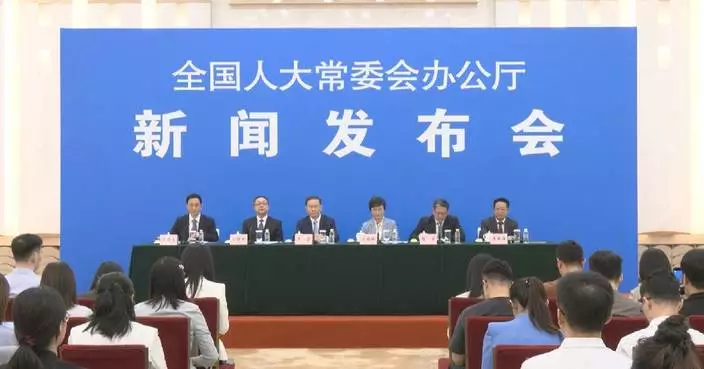The sales of products co-branded with Chinese blockbuster video game "Black Myth: Wukong" have taken off as the epic game has become China's most successful game with over 10 million copies sold three days after release.
"Black Myth: Wukong" has ignited a frenzy among players both at home and abroad since its launch. Drawing inspiration from the classic Chinese novel Journey to the West, the game has become one of the fastest-selling video games of all time, according to VG Insights, a market research platform for video games.
In addition to copies, however, its co-branded merchandise has also sold amazingly well. Inspired by the game, Chinese domestic coffee chain Luckin introduced a special Americano variant, free limited-edition 3D posters, cup holders and other accessories upon purchase of coffee combos. The drinks were sold out at many stores after the game made the global debut. The company even ran out of the 3D posters nationwide within seconds of their launch, almost crashing its online system.
Coffee isn't the only product trying to get a slice of the 'Black Myth' cake. There are many other products that have seized this valuable co-branding opportunity. More than a dozen categories, ranging from collector's edition of the game, graphic cards, computers, solid state drives, gamepads to shared bikes and stamps, have all linked up with the game.
As it turns out, the game did not disappoint these brands either. The clothing brand of a well-known domestic game website that often does co-branding with various game IPs also saw tying up with "Black Myth: Wukong" exceed expectations.
"Black Myth has really exceeded our expectations. For example, we've released the products for about a week or so, and the whole thing has sold almost as much as the other series has sold in a year," said Zhao Xia, CEO of GCORES.
Not just the consumer market, even the stock market has benefited from the game. On the day of the game's release, stocks linked to it jumped by 10 to 20 percent.
In addition to stimulating the markets, the consumer boom triggered by "Black Myth: Wukong" has had a deeper impact.
"In fact, a lot of games that came earlier in China did not really have such great promotional value. I think it's good that 'Black Myth' has made many brands realize the influence of game IPs and their consumer pull. These IPs will now be inspired to cooperate with brands in China and domestic games overseas," said Zhao.

Sales of products co-branded with Black Myth: Wukong take off
The U.S. Congress has taken up a series of bills targeting China -- a move that is aimed at empowering the next president to get off to a running start in what some U.S. political circles view as a strategic rivalry, said analysts.
The U.S. House of Representatives has scheduled up to 28 bills specifically targeting China, with fast-track approval within the so-called "China week."
According to Zhao Hai, research fellow at the Institute of World Economics and Politics, the bills aim to hype up Americans' fear of China as a supposed threat in the run-up to a tight presidential election between former President Donald Trump and current Vice President Kamala Harris.
"At this particular point they would like to insert China as a topic in this presidential campaign and debate, trying to show that Republicans continue to be the toughest party against China and trying to point fingers against Democrats as weak," he said.
The legislation would inevitably hand the country's next president a hot potato as Beijing warns the bills, if passed, "will cause serious interference to China-US relations, damage the U.S.' own interests, image and credibility."
To counter what Republican lawmakers claim as military, economic and ideological threat, the legislation is set to reduce U.S. reliance on highly competitive Chinese biotech companies, and even ban Chinese EVs and drones.
While these bills may be drafted easily enough, they may not be so simple to pass into law due to the real mutual interests the two countries share, Zhao said.
"They have to limit the scope of those legislations. Because once you expand the scope and cover many areas, there's bound to be resistance and also there's a lot of interests that will get involved. So, these legislators know exactly how intertwined China-U.S. interests are and how hard it is to decouple the economies between the two sides," said the researcher.
Among the key pieces of legislation, a Hong Kong-related bill would allow the U.S. president to terminate Hong Kong's representative offices in the U.S on the grounds that Hong Kong lacks autonomy from Beijing -- a premise that Lawrence Ma Yan-kwok, barrister and chairman of Hong Kong Legal Exchange Foundation, said is faulty at its core.
The city has an independent administration and legislation, he said, and Beijing has granted Hong Kong a high degree of autonomy that’s guaranteed by the Basic Law.
"Hong Kong has an absolutely independent judiciary. It has its own financial system and currency, the Hong Kong dollar. And Hong Kong is still a free port and there are no import duties or tariff are imposed on goods. So, the allegation by the U.S. government of Hong Kong lacking autonomy from Beijing is simply not true," Ma added.
Now, the U.S. has a trade surplus of more than 270 billion U.S. dollars with Hong Kong during the past decade - the largest among its global trading partners. If the bill clears the Senate, more than 1,200 American companies in Hong Kong could be affected.
"If the United States government insists on undermining the mutually beneficial relations between Hong Kong and the United States, it will ultimately harm the interests of the United States and its companies," he explained.
Since the Trump era, U.S.-China trade war cost a peak loss of 245,000 U.S. jobs with virtually no benefit to the American economy. The high-stake legislation would further decouple the two major economies while snow-balling the political risks, analysts said.

Slew of anti-China bills in US congress come as desperate campaign ploy: experts










